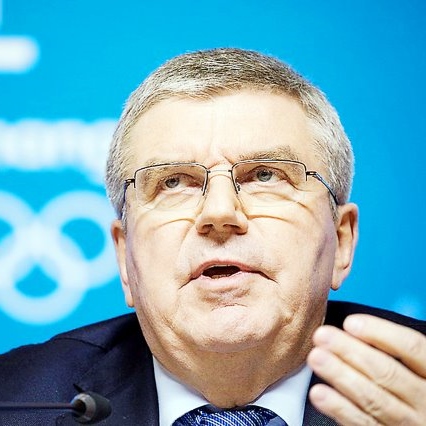
News

IOC stops Tunisia’s bid over treatment of Israeli athletes
JACK MILNER
Last month, Tunisia banned Israeli athletes from taking part in the World Junior Taekwondo Championships in Hammamet. Originally, the Tunisian Taekwondo Federation said the Israelis could participate in the tournament as long as they did so as individuals, without the display of any national symbols.
The ban followed a lawsuit, filed by the National Commission for Supporting Arab Resistance and Opposing Normalisation and Zionism, against the president of the Tunisian Taekwondo Federation.
As a result, Tunisia has been told that it will not be allowed to put forward a bid to host the 2022 Youth Olympics.
IOC president Thomas Bach released a statement explaining the decision. “After Tunisia banned Israeli athletes from participating in a Taekwondo event, the IOC has frozen all contacts with the local National Olympic Committee with regard to its candidature for the Youth Olympic Games 2022.
“We had to address the issue of the increase in governments requesting boycotts of sport events for political reasons. Some governments abuse sport for their political purposes. This is against the mission of sport and of the Olympic Games, which bring people together and unify people regardless of any political differences,” says Bach.
“These boycotts are against our essential values. We are here to watch this carefully and to act.”
The Tunisian capital, Tunis, was vying with Abuja in Nigeria, Dakar in Senegal and Gaborone in Botswana to host the event.
The IOC announcement came as Tunisia’s prime minister opened a conference about dialogue between religions on the country’s island of Djerba, where many of Tunisia’s Jews live, during an annual Jewish pilgrimage taking place amid high security.
Prime Minister Youssef Chahed said his North African nation “will remain a land of peace and tolerance”, according to Mosaique radio. He said Tunisians from all religions are “full citizens of this country”.
This year’s pilgrimage gathered about 3 000 people from Israel, France and Italy. Djerba is home to the largest number of Jews in Tunisia, but has seen a number of anti-Semitic incidents recently.
In January, two Molotov cocktails were thrown at two synagogues on the island during protests against price hikes. Authorities say the incident was not “terror-related”.
The IOC is leading a wider sporting effort to clamp down on athletes from a certain nation being barred from an event in another country for political reasons. There has been a spate of restrictions on Israeli athletes competing in Islamic countries.
Ukraine bars its athletes from competing in Russia, and this has been a major cause for concern; while Kosovan athletes have also been restricted from competing in countries, including Serbia.
Buenos Aires is due to host the third Summer Youth Olympic Games in October to follow the first two editions in Singapore and Nanjing in 2010 and 2014, respectively.
Africa has never hosted an Olympic Games event, but it is hoped that the 2022 youth version could pave the way for an eventual Summer Olympics.
IOC Youth Olympic Games associate director Antoine Goetschy said that the chosen host will, in a way, represent the ambitions of the whole continent.
Organisers plan to tailor the event to the host city and will not confirm if all Summer Olympic sports will remain on the 2022 programme at this stage.
An IOC panel, led by Goetschy, is currently in Africa for further talks with Botswana, Nigeria and Senegal.
A host will then be chosen at the IOC games in Buenos Aires in October.
There will also be a special focus on providing education to athletes about how to combat harassment at future Youth Olympics, as well as on other issues such as match fixing and anti-doping.




